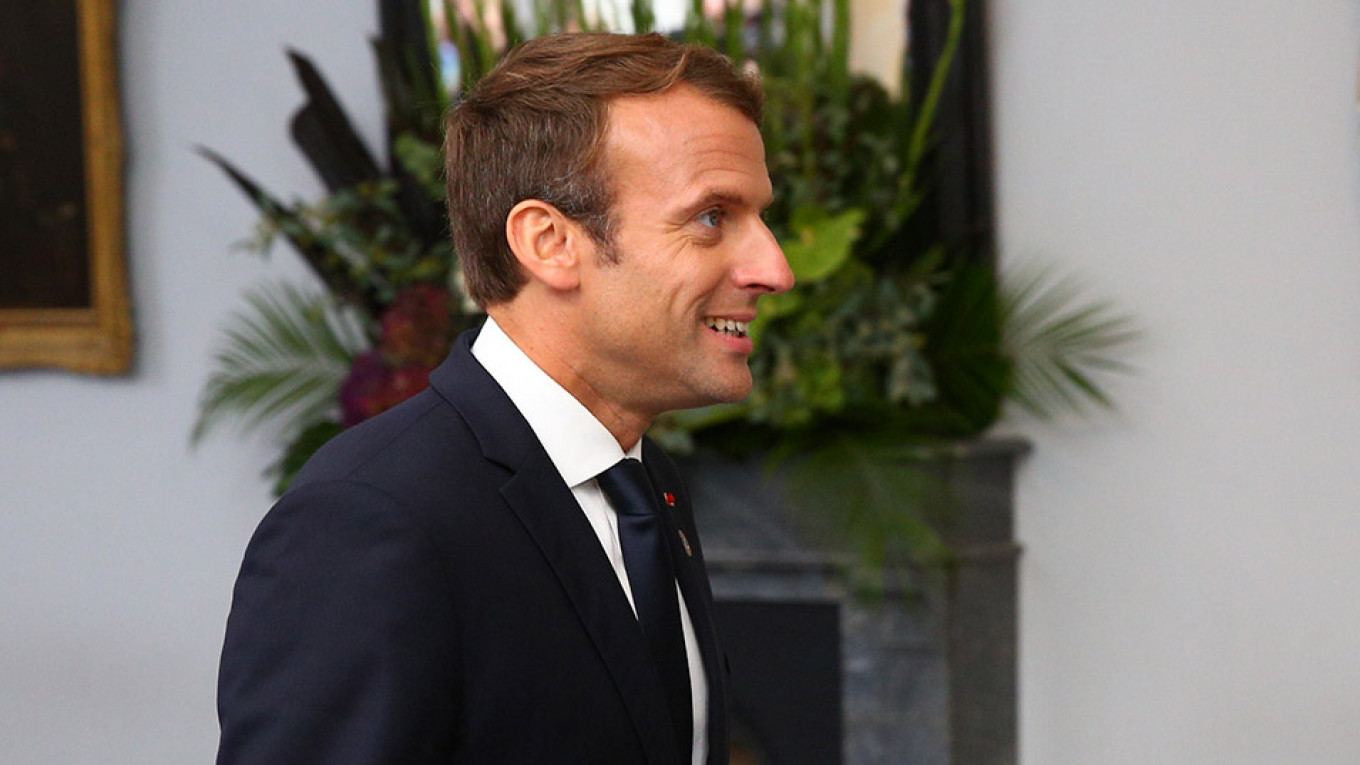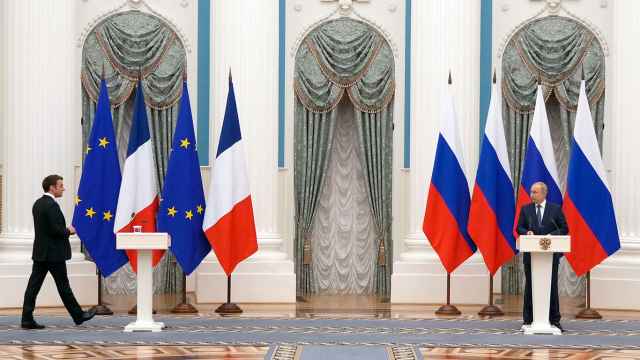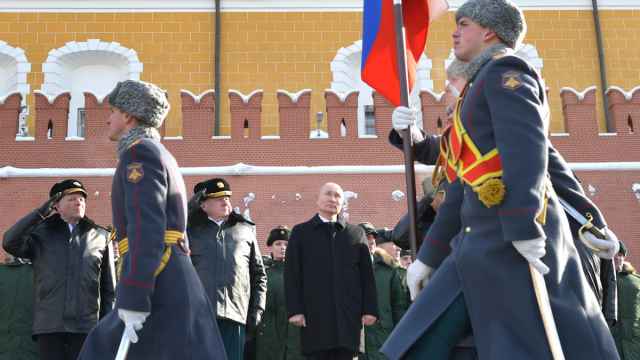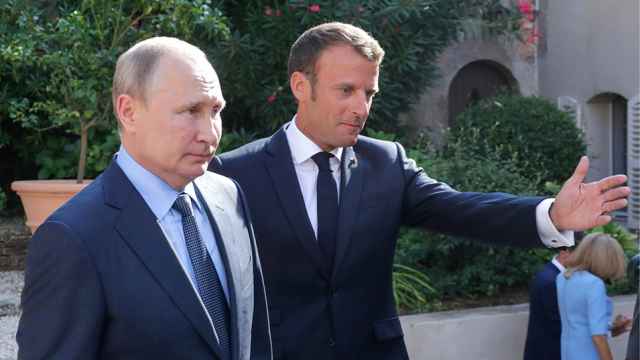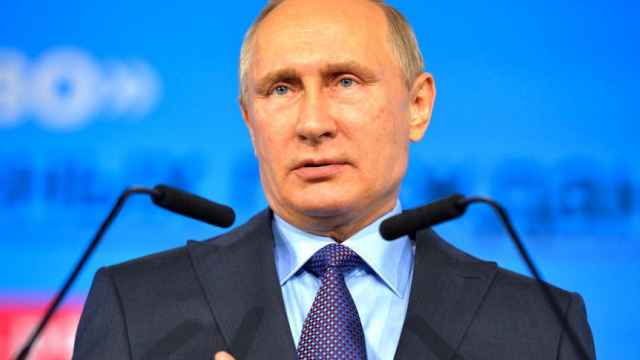In a remarkably frank interview with the Economist, French President Emmanuel Macron laid out a vision of a European security architecture that includes more cooperation with Russia and less with the U.S. than today. It’s courageous but flawed.
“To my mind, what we are currently experiencing is the brain death of NATO,” Macron announced, due to “no coordination whatsoever of strategic decision-making between the United States and its NATO allies.” The U.S., according to him, doesn’t share its European allies’ interests. Under President Donald Trump, the U.S. treats Islamist terrorism and Russia’s actions in Ukraine as Europe’s problems because they play out in Europe’s neighborhood, far from U.S. shores. All that the U.S. does is provide a defense umbrella in exchange for an exclusive commitment to buy U.S. products. “France didn’t sign up for that,” Macron said, making it clear that he doubts Trump’s commitment to NATO’s mutual security guarantee, spelled out in Article 5 of the North Atlantic Treaty.
This insecurity explains Macron’s efforts to involve more European countries in defense cooperation, which he admits won’t yield immediate results. It also explains his reluctance to go along with what he calls a “really tough” U.S. stance on Moscow. Russia, to Macron, has no long-term alternative to “a partnership project” with Europe, and so Europeans must engage with it and figure out on which issues there can be immediate cooperation (for example, fighting terrorism) and on which it’s advisable to start with mere deconfliction (for example, cyberwarfare). To make this possible, Macron wants to discuss what guarantees Russia needs to feel more secure, and he’s even open to talking about “an EU and a NATO guarantee of no further advances on a given territory.”
This worldview has an obvious internal logic, especially if the U.S. isn’t a fully committed ally: “We have the right not to be outright enemies with our friends’ enemies.”
The problem with this logic is that it appears to be built on a long-term view of Russia’s options and a short-term view of U.S. ones. That’s what undermines Macron’s agitation for a European defense bloc that would exist parallel to NATO.
Macron told the Economist that Russia faces a menu of just three strategic options: trying to be a superpower in its own right; becoming China’s vassal; and “re-establishing a policy of balance with Europe.” According to Macron, only the third option is viable. Obviously, Russian President Vladimir Putin would feel uncomfortable making his country China’s junior partner. And the superpower path is difficult because Russia’s shrinking, aging population can’t sustain it, and Putin’s “identity-based conservatism” prevents him from having “a migration policy.” So only rapprochement with Europe remains.
That’s a mistake. For starters, Russia is a big country of immigration. Its official statistics on population flows are unreliable because of visa-free policies with former Soviet countries, but it’s the sixth biggest source of international migrant remittances, just behind Germany and well ahead of France.
Putin’s ideological constructs only exist for propaganda’s sake. His real policies are focused on taking Russia down the solitary great power path. In his mind, and in the minds of his foreign policy advisers, Russia has no other options. One of the Russian president’s favorite quotes — which he has used ostensibly in jest — belongs to Czar Alexander III: “Russia only has two allies, its army and its navy.” Within this mindset, Putin is happy to take any concessions Europe may offer him, such as Macron’s intervention in favor of giving back Russia’s vote in the Council of Europe. But they’re not going to make him drop what Macon calls his “anti-European project” born of his “conservatism.” Europe is not a potential ally for Putin, it’s a playing field in what he sees as Russia’s big game with the U.S.
Putin’s great power project isn’t necessarily forever and the possibility exists that a future Russian leader will think of Russia as part of some broad European project, as Putin’s predecessor Boris Yeltsin did for a while after the Soviet Union’s collapse. But waiting for that requires an extremely long-term view.
With the U.S., the situation is almost exactly the opposite. Trump’s isolationist project is as new as his presidency, and none of his realistic Democratic rivals in the 2020 election would like to continue with it. The U.S. already has a long-standing cooperation project with Europe, which started with the Marshall Plan and the Berlin Airlift and hasn’t quite ended with Trump, given the strong EU-U.S. trade relationship. There’s a high likelihood that whenever Trump leaves office, be it in 2020 or four years later, the U.S. will try to patch things up — and it’ll be much easier for Europe to accept its advances than to establish a cooperative pattern with Russia.
Just as Macron says, it’s getting harder and harder to pin down what NATO membership really means and what threats the bloc is capable of confronting. But it’s a working structure that has conducted real military operations and practiced coordinating national armies; Macron himself calls the interoperability within NATO “efficient.” Setting up a parallel defense architecture can only undermine this working mechanism, no matter how many times Macron repeats that any EU military project is going to be complementary to it.
Is that worth doing because of what looks to many like a temporary threat from Trump — and for the sake of a long shot with Russia? That’s the underlying question that makes it difficult for Macron’s EU military ambitions to go beyond talk, pilot projects and some defense industry coordination. More decisive progress will only be possible if Trumpian behavior becomes the norm in the U.S. — and if Russia suddenly turns demonstrably pro-European, reversing, for example, its current policy on Ukraine.
Macron sounds bold, strategic, even prophetic at times — but his geopolitical judgments aren’t indisputable or even universally attractive. Most of all, they’re unproven. Waiting seems more attractive at this point than feverishly developing an expensive, politically iffy project. It’ll take much more than his eloquence to make Europe’s geopolitical repositioning a reality.
This article was first published in Bloomberg.
A Message from The Moscow Times:
Dear readers,
We are facing unprecedented challenges. Russia's Prosecutor General's Office has designated The Moscow Times as an "undesirable" organization, criminalizing our work and putting our staff at risk of prosecution. This follows our earlier unjust labeling as a "foreign agent."
These actions are direct attempts to silence independent journalism in Russia. The authorities claim our work "discredits the decisions of the Russian leadership." We see things differently: we strive to provide accurate, unbiased reporting on Russia.
We, the journalists of The Moscow Times, refuse to be silenced. But to continue our work, we need your help.
Your support, no matter how small, makes a world of difference. If you can, please support us monthly starting from just $2. It's quick to set up, and every contribution makes a significant impact.
By supporting The Moscow Times, you're defending open, independent journalism in the face of repression. Thank you for standing with us.
Remind me later.



